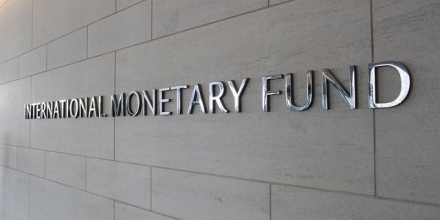Past events
Low volatility as a predictor of stock market crisis
In this seminar, Lin Qi will present an overview of his thesis on Low volatility as a predictor of stock market crisis.
IMF World Economic Outlook October 2018
This presentation will discuss issues facing the global economy 10 years after the 2008 financial crisis, based on the recently launched edition of the IMF’s flagship publication, World Economic Outlook, October 2018.
Improved methods for combining point forecasts for an asymmetrically distributed variable
Many studies have found that forecast combination improves forecast accuracy. An often-used approach developed by Granger and Ramanathan (GR, 1984) utilises a linear-Gaussian regression model to combine point forecasts. This presentation generalises their approach for an asymmetrically distributed target variable.
Ten years after the financial crisis: What have we learned from the Renaissance in fiscal research?
In this seminar, Valerie Ramey will present an overview of her paper “Ten years after the financial crisis: What have we learned from the Renaissance in fiscal research?” This paper takes stock of what she has learned from the ‘Renaissance’ in fiscal research in the ten years since the financial crisis.
Innovation, corruption and growth: a case study of Vietnamese SMEs
In this seminar, Hang Hoang presents the results of her investigation on how firms transform innovation knowledge into firm growth.
A decreasing elasticity of substitution between clean and dirty energy and the potential implications for policy
Using a stylised structural model of electricity generation, Tony derives a (bimodal) production function for clean and dirty technologies with two elasticities: a high elasticity for low clean penetration and a low elasticity for high clean penetration.
Technology for aging Asia
This event explores the implication of aging on labour force participation, productivity, and growth while examining the role and potential of technology to harness the gain from longevity dividend, in order to draw actionable policy recommendations and priorities.
Liability-side financial frictions in an estimated asymmetric country model
In this seminar, Xuan-Lam develops a business cycle model of two asymmetric countries in which independent banking sectors are subject to moral hazards due to their ability to divert assets.
Regime switching in the relationship between the world oil market and China’s output
Bao Nguyen present his paper on the dynamic relationship between China’s economic growth and international oil market.
Demographic changes and macroeconomic implications
In this seminar, Phitawat Poonpolkul will present an overview of his dissertation on ‘Essays on Demographic Changes and Macroeconomic Implications’.
Pages
Updated: 27 July 2024/Responsible Officer: Crawford Engagement/Page Contact: CAMA admin
















